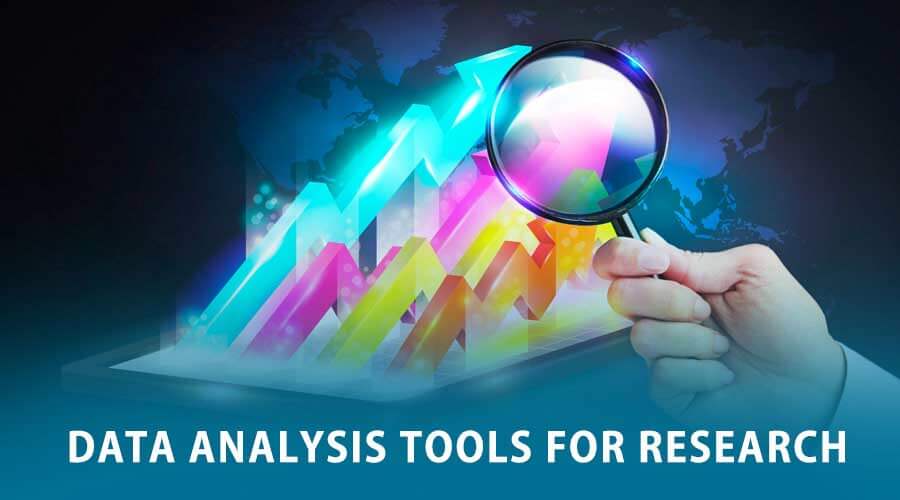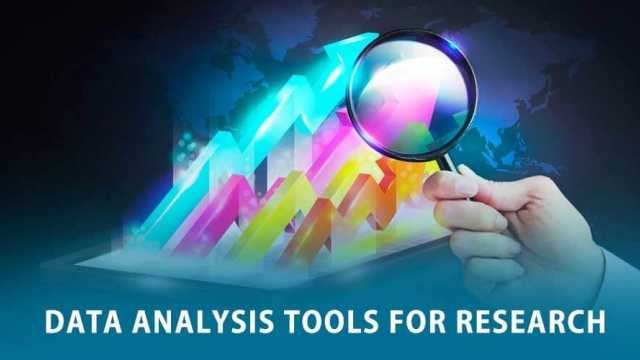
Introduction:
In today’s data-driven world, research and data analysis have become pivotal in unraveling the mysteries and complexities of various domains. From scientific breakthroughs to business strategies, research and analysis are indispensable tools that empower us to make informed decisions and uncover valuable insights. In this article, we will delve into the realm of research and data analysis, exploring the key concepts, methodologies, and benefits that come with this powerful combination. So, fasten your seatbelts and prepare to embark on a journey of discovery as we decode the true power of research and analysis!
Importance of Research
Research is a fundamental aspect of any field or industry. It plays a critical role in shaping our understanding and knowledge, enabling us to make informed decisions and advancements. Through rigorous investigation and exploration, research allows us to uncover valuable insights, uncover patterns, and gain a deeper understanding of the world around us. It serves as the foundation upon which progress and innovation are built.
By conducting research, we can gather and examine data that serves as evidence to support or challenge existing theories and hypotheses. This systematic approach enables us to analyze and interpret information in a structured manner, ensuring accuracy and reliability in our findings. Without research, our knowledge would be limited, and we would lack the ability to explore new ideas, challenge assumptions, and push the boundaries of what is known.
Moreover, research is essential for problem-solving and decision-making. Whether in academia, business, or public policy, the ability to gather and analyze data allows us to identify challenges, develop strategies, and make well-informed choices. Research empowers us to identify trends, uncover opportunities, and address gaps in our understanding, thereby guiding us towards effective solutions and improvements.
In addition to generating new knowledge and facilitating decision-making, research also fuels innovation and drives progress. It serves as a catalyst for breakthroughs in technology, medicine, social sciences, and numerous other fields. By exploring new perspectives and pushing the boundaries of existing knowledge, research opens doors to discoveries and inventions that have the potential to transform our lives.
In conclusion, research is of paramount importance as it enables us to expand our knowledge, foster critical thinking, and make informed decisions. It serves as the cornerstone of progress, innovation, and problem-solving. By recognizing the significance of research, we can unleash its power to unlock new possibilities and drive positive change in our society.
Steps in Data Analysis
In the world of research and analysis, data holds immense power. But how do we unlock this power? It all lies in the systematic steps of data analysis. By following these structured processes, we can effectively decode data and extract valuable insights. Let’s dive into the fundamental steps required for successful data analysis.
Data Collection:
The first step in any data analysis journey is gathering the necessary data. This can be done through various methods, such as surveys, experiments, or accessing existing datasets. It is crucial to ensure the data collected is reliable, representative, and relevant to the research objectives. Proper data collection forms the foundation for accurate and meaningful analysis.Data Cleaning and Preparation:
Raw data is often messy and contains errors, missing values, or inconsistencies. To ensure the integrity of our analysis, data cleaning and preparation is essential. This involves identifying and resolving any issues within the dataset, such as removing duplicates, filling in missing values, or transforming data into a suitable format. By cleaning and preparing the data, we enable accurate and reliable analysis outcomes.Data Analysis Techniques:
Qualitative Dissertation Writing Services
With clean and well-prepared data, we can now apply various analysis techniques to derive insights. These techniques can range from simple descriptive statistics to advanced machine learning algorithms, depending on the research goals. Common data analysis techniques include hypothesis testing, regression analysis, clustering, and visualizations. By employing appropriate techniques, we can uncover patterns, relationships, and trends within the data.
By following these steps in data analysis, researchers can harness the true power of data. Each step plays a critical role in ensuring the accuracy, reliability, and significance of the findings. Remember, successful data analysis is not just about the tools or techniques used, but also the systematic and meticulous approach taken throughout the entire process.
Applications of Research and Analysis
The power of research and data analysis can be harnessed across various fields, contributing to advancements and informed decision-making. Let us explore some key applications where these processes play a crucial role.
- Business and Market Insights
Research and analysis are invaluable tools in the world of business. Through thorough market research, companies gain insights into consumer behaviors, preferences, and trends. This enables them to develop effective marketing strategies, optimize product offerings, and make informed business decisions. By leveraging data analysis techniques, businesses can uncover patterns, identify opportunities for growth, and gain a competitive edge in the market.
- Healthcare and Medical Research
Research and analysis have revolutionized healthcare and medical research. In this field, data analysis techniques are used to study large datasets, such as patient records and clinical trials, to identify patterns and correlations that may be critical in diagnosing diseases, predicting treatment outcomes, and developing new therapies. By applying research and data analysis, healthcare professionals can improve patient care, enhance treatment efficacy, and contribute to medical advancements.
- Social Sciences and Public Policy
From understanding social issues to shaping public policies, research and analysis have a significant impact in the social sciences. These fields rely on research methodologies to collect and analyze data, providing insights into human behavior, social trends, and policy impacts. By conducting rigorous research and applying data analysis techniques, researchers and policymakers can develop evidence-based solutions to address societal challenges, foster social cohesion, and drive positive change.
Remember, the applications mentioned here are just a glimpse of the vast potential offered by research and data analysis. Their versatility allows them to be applied in numerous fields, contributing to progress and advancements in various domains.
